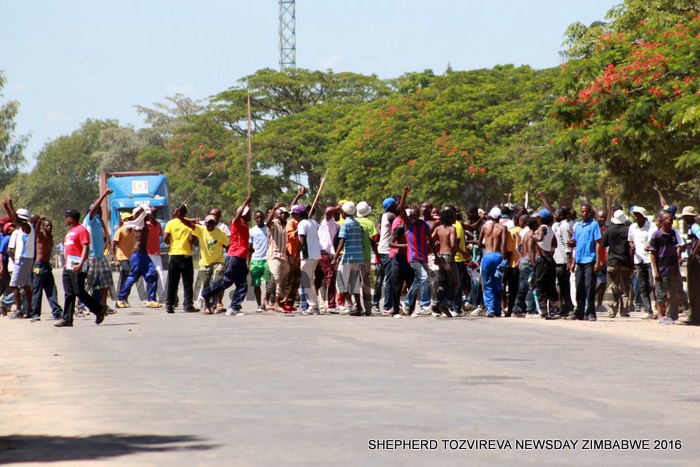
BY DESMOND SHARUKAI
The youth of Zimbabwe acknowledge government efforts towards cushioning vulnerable households affected by the 30-day national lockdown which commenced on January 5 2020.
According to a local media story, government through the Public Service, Labour and Social Welfare ministry has budgeted $3,5 billion to cushion over 500 000 vulnerable households that will receive cash pay-outs to mitigate the impact of COVID-19.
The article further revealed that the allowance for vulnerable households will be raised to $800 from $300 per month, with beneficiaries for this fund set to include over 500 000 workers in the formal sector, 5 000 returning residents in quarantine centres and 700 children living on the streets.
The programme is set to run for six months and will see households receiving foodstuffs during the lockdown period and beyond.
While this is a welcome move by government, it is important to note that this is not the first time that it is implementing a COVID-19 relief intervention. Readers will remember that on May 1 2020, President Emmerson Mnangagwa unveiled an $18 billion economic recovery and stimulus package aimed at reinvigorating the economy and providing relief to individuals, families, small businesses and industries affected by the economic slowdown caused by the coronavirus pandemic and the attendant response measures implemented by the government to control the health crisis.
Resultantly, government through the Youth, Sport, Arts and Recreation ministry launched the COVID-19 youth relief fund (YoReFu) and an athletes and artists relief fund.
As part of its policy advocacy work, the Youth Empowerment and Transformation Trust (YETT), which is a youth networking organisation committed to the full participation of young people in sustainable development, conducted a rapid assessment of the first phase of the $17 million YoReFu.
- Chamisa under fire over US$120K donation
- Mavhunga puts DeMbare into Chibuku quarterfinals
- Pension funds bet on Cabora Bassa oilfields
- Councils defy govt fire tender directive
Keep Reading
The assessment revealed a few key concerns regarding the operationalisation of COVID-19 relief initiatives such as the YoReFu.
The glaring issues included lack of awareness among the targeted constituencies due to a weak media and advertisement strategy for the said relief initiatives.
The accurate and broad dissemination of information cannot be over-stressed for it provides for a smooth flow of programmes such as these.
Also, it is essential for government to clearly state the eligibility criteria for any relief interventions and leave no room for bias.
This goes further to inspire the actual selection process which should be transparent and include publication of beneficiaries at district, provincial and national levels for purposes of transparency and accountability.
It is prudent to also mention that turnaround time, processing time from application, registration to disbursement should be reduced to a minimal.
Usually, a lot of bureaucracy lengthens the processing time and given the current hyperinflationary environment, the disbursement will be made at a time the monetary value will have been eroded. The quickening of his process facilitates the smooth prioritisation of vulnerable groups such as people with disabilities (PWDs), women and youth.
COVID-19 relief grant amounts should be aligned to the prevailing cost-of-living in order for them to make a significant impact.
The proposal to disburse $800 per month to families, which essentially amounts to less than USD$10 on the prevailing interbank exchange rate, is a cause for concern.
A family can barely get by on this meagre amount for the duration of a week let alone a month as is mentioned in the referenced article.
Anti-corruption mechanisms such as a whistleblower facility should be put in place to safeguard COVID-19 relief efforts from loss through theft and misappropriation.
It is taxpayers’ money after all, hence it should be used in the most prudent manner. It is the writer’s belief that if there is any truth to the prospect of a government intervention, these and other measures should be put in place to ensure a credible, inclusive and transparent process as we all battle this second wave of the deadly COVID-19 pandemic.











